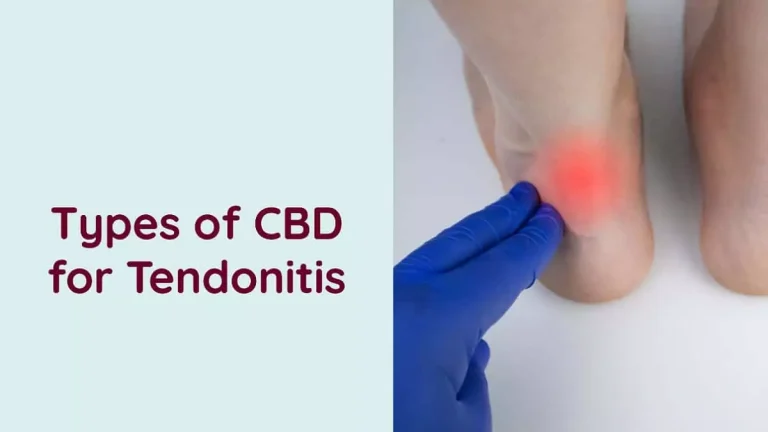CBD and Tendonitis Recovery: Tendonitis is a common condition that occurs when the tendons, which connect muscles to bones, become inflamed. This condition can cause pain, stiffness, and reduced mobility, making it difficult to carry out everyday activities. While there are various treatments available for tendonitis, many people are turning to CBD as a natural remedy. In this article, we will explore the relationship between CBD and tendonitis recovery.
Table of Contents
If you’re suffering from tendonitis and seeking a natural remedy, CBD might be worth considering. With its anti-inflammatory and analgesic properties, CBD may help alleviate pain and inflammation associated with this condition.
Tendonitis is a condition that can affect anyone, regardless of age or gender. It is usually caused by repetitive motion or overuse of the tendons, resulting in inflammation and pain. The condition is most common in the elbows, shoulders, wrists, knees, and heels.
Tendonitis can be a debilitating condition, as it limits mobility and can cause pain with even the slightest movement. This is why many people seek out treatments that can help alleviate the pain and speed up the recovery process. CBD, or cannabidiol, has been gaining popularity in recent years for its potential therapeutic benefits. In particular, CBD is known for its anti-inflammatory and analgesic properties, which make it a promising remedy for those suffering from tendonitis.
What is CBD?
CBD is a natural compound found in the hemp plant. It is one of over 100 cannabinoids, which are the active ingredients that give the plant its therapeutic properties. Unlike THC, another well-known cannabinoid, CBD is non-psychoactive, meaning it does not produce the “high” associated with marijuana use.
CBD works by interacting with the body’s endocannabinoid system (ECS), which is responsible for regulating various functions such as pain, inflammation, and mood. When CBD is consumed, it binds to receptors in the endocannabinoid system, leading to a range of therapeutic effects.
How Can CBD Help with Tendonitis?
CBD and Tendonitis Recovery: CBD has been found to have anti-inflammatory and analgesic properties, making it a potential treatment for tendonitis. Inflammation is a key factor in the development of tendonitis, and CBD has been shown to reduce inflammation by inhibiting the production of inflammatory cytokines.
In addition, CBD may help alleviate pain associated with tendonitis. A study published in the European Journal of Pain found that CBD can reduce pain and improve function in people with chronic pain conditions. This suggests that CBD may be a useful remedy for the pain and discomfort associated with tendonitis.

How to Use CBD for Tendonitis Recovery
CBD can be consumed in various forms, including CBD oils, CBD tinctures, CBD edibles, and CBD topical creams. When using CBD for tendonitis recovery, CBD topical creams and CBD ointments may be the most effective, as they can be applied directly to the affected area.
When using CBD topicals, it is important to choose a product that contains high-quality CBD and other natural ingredients. Look for products that have been tested by a third-party lab and have a certificate of analysis (COA) available. This will ensure that you are getting a safe and effective product.
CBD and Tendonitis Recovery: Conclusion
While more research is needed to fully understand the potential benefits of CBD and tendonitis recovery, early studies suggest that it may be a promising natural remedy. With its anti-inflammatory and analgesic properties, CBD may help reduce pain and inflammation associated with this condition. If you’re considering using CBD for tendonitis, be sure to consult with your healthcare provider first to ensure it is safe for you to use.




[…] is a compound found in the cannabis plant. Unlike THC, another compound found in cannabis, CBD is not psychoactive and does not cause the “high” typically associated with marijuana […]